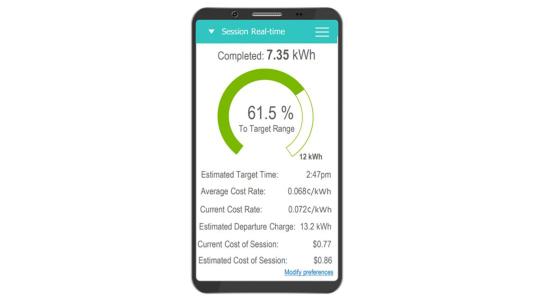
As electric vehicles start to fill the roads, there is the possibility that charging needs of this greener mode of transportation may not be adequately met, unless a system of managed charging is put in place. An engineer at the U.S. Department of Energy’s (DOE) Argonne National Laboratory has developed a cutting-edge framework that provides a solution.
“I decided to develop the framework to be used with electric vehicle charging protocols and real-time pricing that a utility generally provides,” said Daniel Dobrzynski, an electrical engineer at Argonne’s Electric Vehicle Interoperability Center.
The transactive framework, which is essentially a framework to bid for pricing and availability of charging for electric vehicles, involves communication between an agent (a phone app, currently in the conceptual stage), a controller (charging stations) and a coordinator (energy management system on a server that is capable of providing transactive services.
While most charging for electric vehicles is done at home, a driver may also need to charge while traveling long distance or running errands. And, as electric vehicles penetrate the consumer market there is heightened probability that the regional electric utility or local charging station premise cannot meet the demand of all vehicles needing a charge.
Each charging station may have a different way of allocating the charging of electric vehicles when there is a power limited scenario: querying drivers to input urgency (requiring a greater-good mentality), giving maximum charge to the first drivers that arrive, equally distributing charge among all drivers or taking turns at maximum charge rates.
The transactive framework, however, provides a more equitable approach, allowing drivers with urgency the option to charge at the fastest rates and rewarding drivers who are flexible (willing to charge at a slower rate) with financial savings.
“If someone has a real urgency and needs to get somewhere, they’re willing to pay a little bit extra, Dobrzynski said. For drivers who are flexible, however, you might even be able to charge for free in some cases.”
Additionally, the transactive framework also provides a benefit because the rules are established and transparent for all drivers.
Using a phone app, drivers will receive predicted energy price rates. Drivers have the opportunity to bid more or less than the predicted rate, depending on urgency. Hypothetically, someone who is in a rush to get somewhere and needs a faster charge (e.g. they need to be charged to leave in an hour instead of their usual 8 hours at work) may be willing to pay a multiple of the standard market rate to be able to leave on time. Those who are willing to receive a lower charge and wait longer, however, will receive a rebate based on the excess above the standard market rate paid by the driver who purchased the higher rate charge.
“The system allows for drivers to pay a premium to have priority during times of limited power supply, however the system returns the inflated charging costs to the drivers that limit their charging in the form of rebates. The system does not profit on increased charging costs, but returns profits to drivers who are more flexible,” Dobrzynski said. This could also be altered, as business models may evolve.
An electric vehicle service provider, which develops, installs and manages charging stations, could be the perfect partner to build the app for the transactive framework. Adding a transactive charging feature may be beneficial as they would have a fair and unique charge capacity allocation solution to the problem of EV charging congestion that may be encountered in the future.
Dobrzynski led the development of the transactive framework, while electrical engineer Jason Harper, provided additional project guidance. Funding was provided from the U.S. Department of Energy’s Grid Modernization Laboratory Consortium (GMLC), a partnership of laboratories of which Argonne is a member.